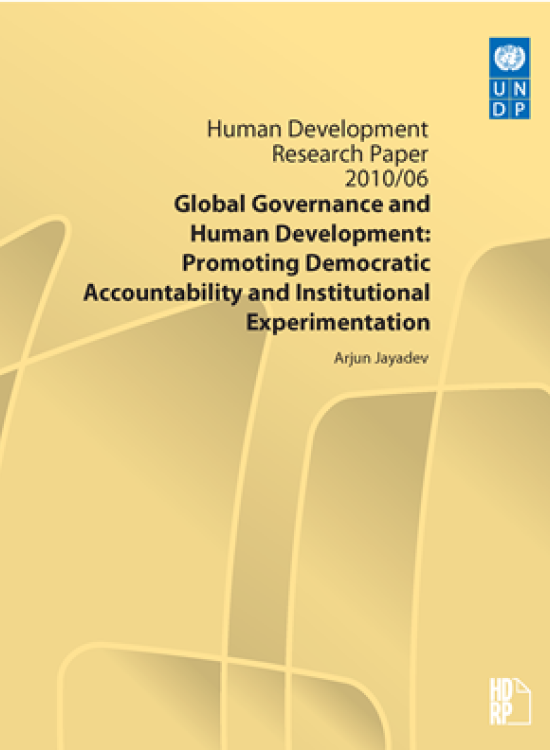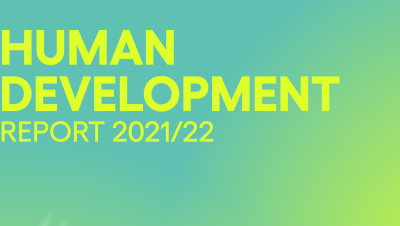Global Governance and Human Development
Promoting Democratic Accountability and Institutional Experimentation

Download Report by Language
Document
hdrp201006.pdf
(540.41 KB)
Citation
Jayadev, Arjun. 2010. Global Governance and Human Development: Promoting Democratic Accountability and Institutional Experimentation. New York.
Global Governance and Human Development
Promoting Democratic Accountability and Institutional Experimentation
Posted on: January 01, 2010
This paper seeks to critically examine recent debates on global governance, albeit from a human development perspective. In doing so it identifies and describes two important principles for building institutions for the advancing of human development: what may be termed the imperative of democratic accountability (most closely associated with the work of Amartya Sen) and the imperative of institutional experimentation (which has been theorized most extensively by Roberto Unger). The paper discusses these two principles in light of some of the major challenges that can and do affect the international community as a whole. It reviews some of the decentralized forms of governance which are evolving as developing countries assert themselves in debates on institutional organization. It then focuses more extensively on the global financial crisis as a case study in the inadequacies of current global governance. Finally, it uses the two imperatives mentioned to review the lessons that the crisis has provided, before describing specific proposals to redesign systems of global economic governance. Chief among these are the reforms advocated by the Commission of Experts of the President of the United Nations General Assembly on Reforms of the International Monetary and Financial System.

